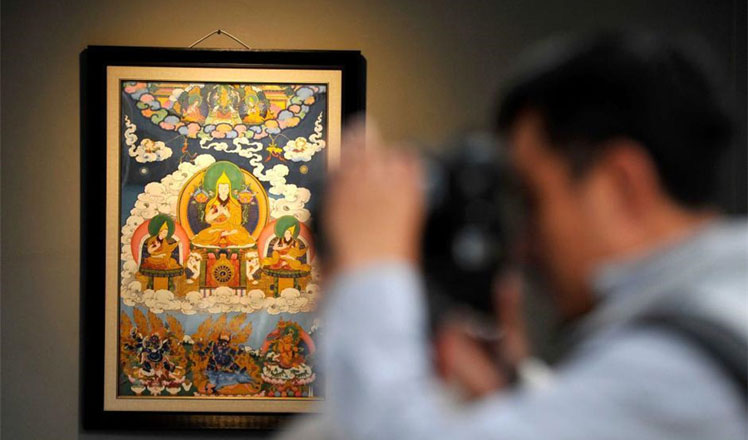Lab-created 'sound black hole' could prove Hawking's theory
Updated: 2016-05-04 16:11
(Sputnik)
|
||||||||
Professor Stephen Hawking could finally win a Nobel Prize, as an Israeli scientist proves the professor's theory may be correct by creating a black hole in his laboratory.
A scientist from Israel may have finally helped to prove one of the world's most famous theories is, in fact, correct.
Research by Professor Hawking, a cosmologist at Cambridge University, disputed the notion that black holes are a gravitational sink hole that pulls in matter and never allows anything to escape, even light.
Back in 1974, Professor Hawking made ground-breaking claims that black holes are actually slowly evaporating.
His theory said particles could rob black holes of their energy, making them disappear at a minuscule rate as they release everything they had once swallowed in a trickle of dust.
For years scientists have been plagued by the existence of black holes and have questioned whether Professor Hawking's theory is in fact true.
Now for the first time, one scientist in Israel may have proven that what Professor Hawking has been saying for many years is right.
Professor Jeff Steinhauer, who teaches Physics at the Technion University in Haifa, has created something similar to a "black hole" in his laboratory.
In a paper published on the physics pre-print website arXiv, Professor Steinhauer describes how he cooled helium close to zero, roughly minus 459 degrees Fahrenheit — and moved it around so quickly that a sound barrier was created and no sound could pass through it — much like light in a black hole.
Professor Steinhauer says the phonons - the energy that makes up sound waves - were escaping from the "sound black hole," much like in Hawking's theory.
If this proves to be correct, Professor Hawking could finally win a Nobel Prize for his work.
However, Professor Steinhauer's work has been met with slight skeptism amongst the scientist community, who are currently looking for alternative reasons as to why the particles may have leaked.
Nevertheless, the development could open up a bizarre vision of the universe in which black holes can cough themselves into nothingness, Hawking said during his recent lectures at Harvard.
"This raises a serious problem that strikes at the heart of our understanding of science… If determinism, the predictability of the universe, breaks down with black holes, it could break down in other situations," Hawking said.
"Even worse, if determinism breaks down, we can't be sure of our past history, either. The history books and our memories could just be illusions."
- UN urges DPRK to stop 'further provocative action'
- China stresses Putin's expected visit
- British FM visits Cuba for 1st time since 1959
- Trump attacks Clinton on gender, risking backlash from women
- Pirate radio poses surprising challenge in internet age
- DPRK's Musudan missile launch appears to have failed

 Olympic flame lands in Brazil for 94-day relay to Games
Olympic flame lands in Brazil for 94-day relay to Games
 Top 10 least affordable cities to rent in
Top 10 least affordable cities to rent in
 Exhibition of Tibetan Thangka painting held in Lhasa
Exhibition of Tibetan Thangka painting held in Lhasa
 Storm's aftermath is a pink petal paradise
Storm's aftermath is a pink petal paradise
 Xinjiang-Tibet Highway: Top of the world
Xinjiang-Tibet Highway: Top of the world
 Female patrol team seen at West Lake in Hangzhou
Female patrol team seen at West Lake in Hangzhou
 Drones monitoring traffic during May Day holiday
Drones monitoring traffic during May Day holiday
 Sino-Italian police patrols launched in Italy
Sino-Italian police patrols launched in Italy
Most Viewed
Editor's Picks

|

|

|

|

|

|
Today's Top News
Liang avoids jail in shooting death
China's finance minister addresses ratings downgrade
Duke alumni visit Chinese Embassy
Marriott unlikely to top Anbang offer for Starwood: Observers
Chinese biopharma debuts on Nasdaq
What ends Jeb Bush's White House hopes
Investigation for Nicolas's campaign
Will US-ASEAN meeting be good for region?
US Weekly

|

|







